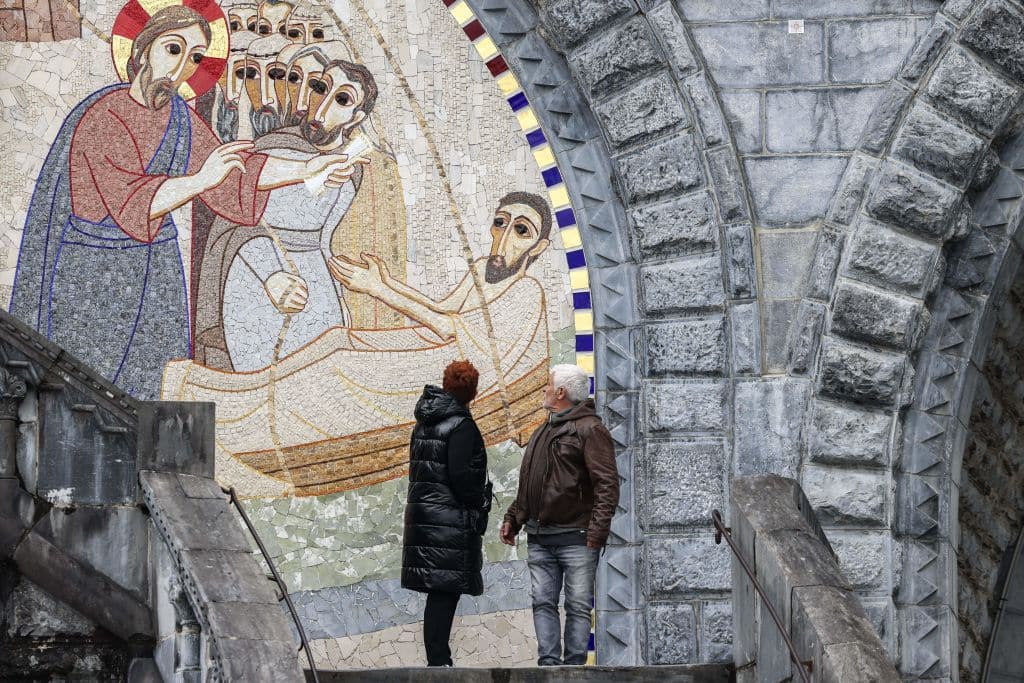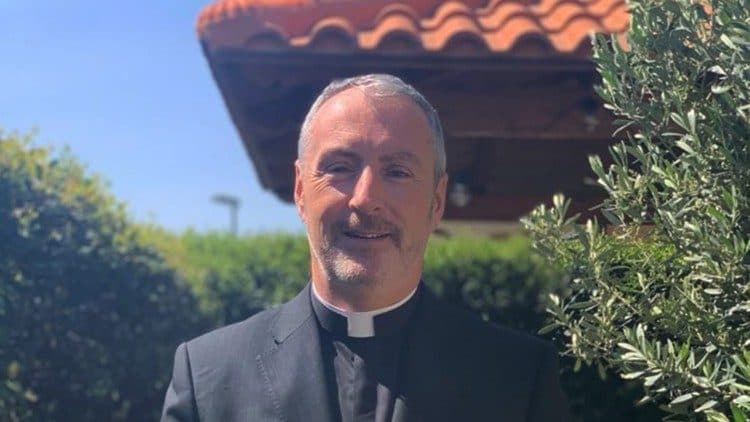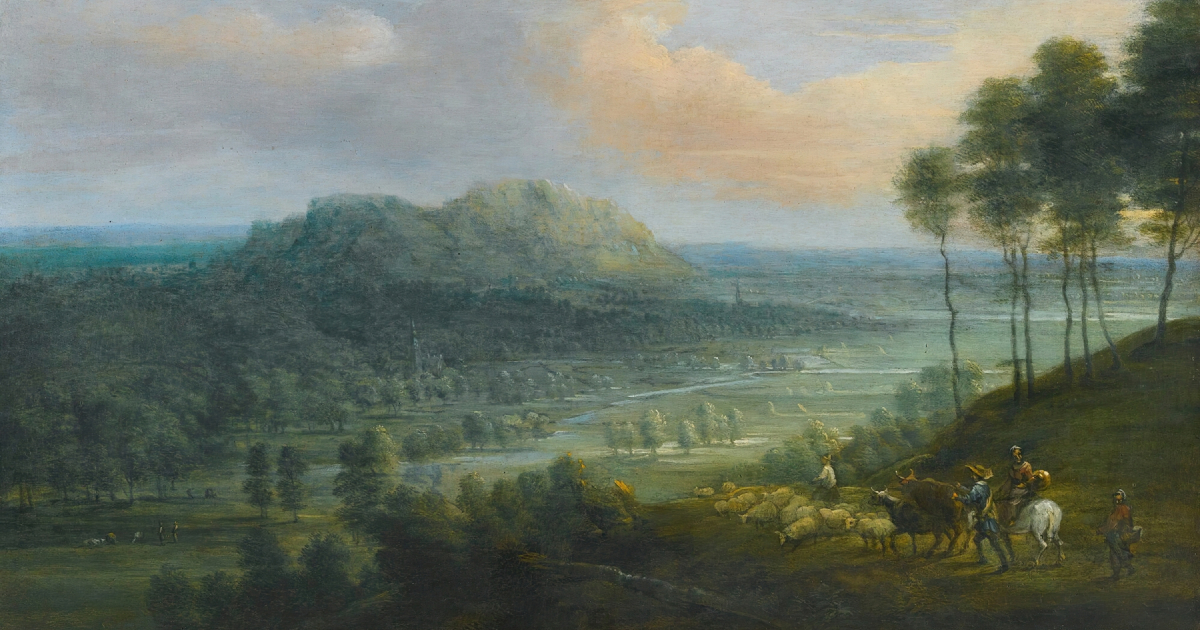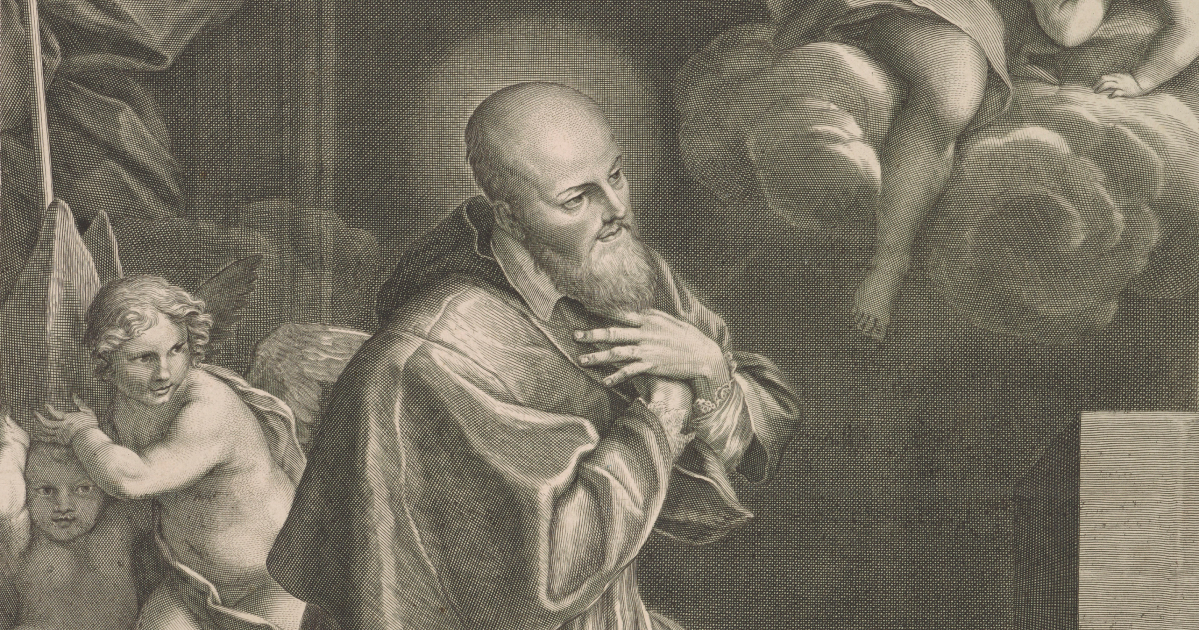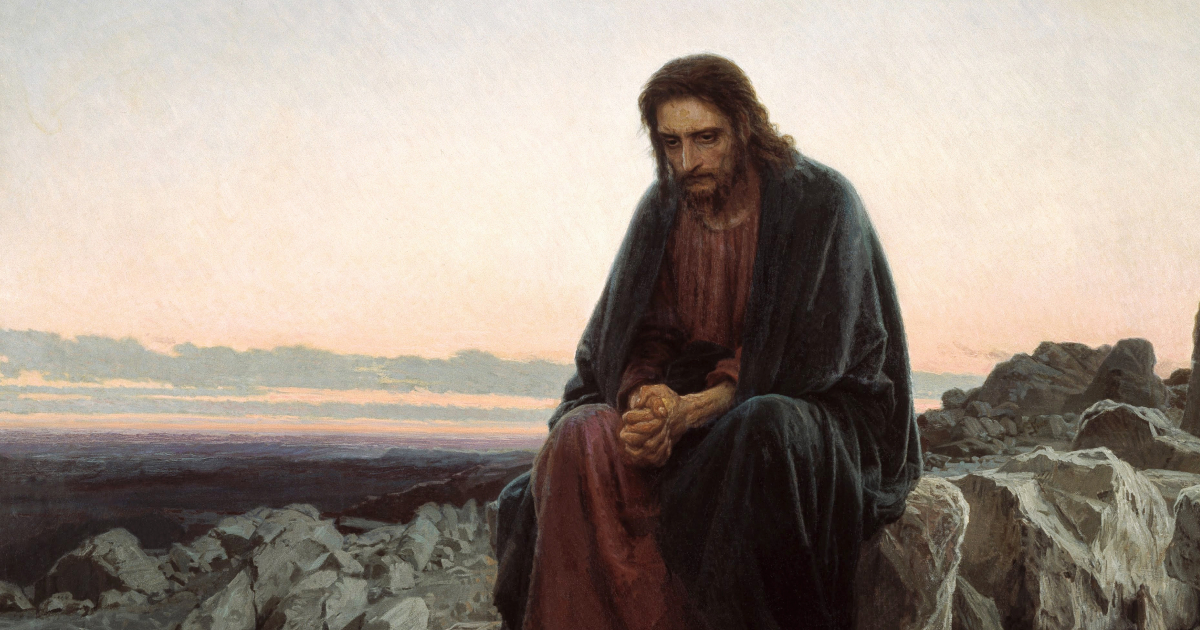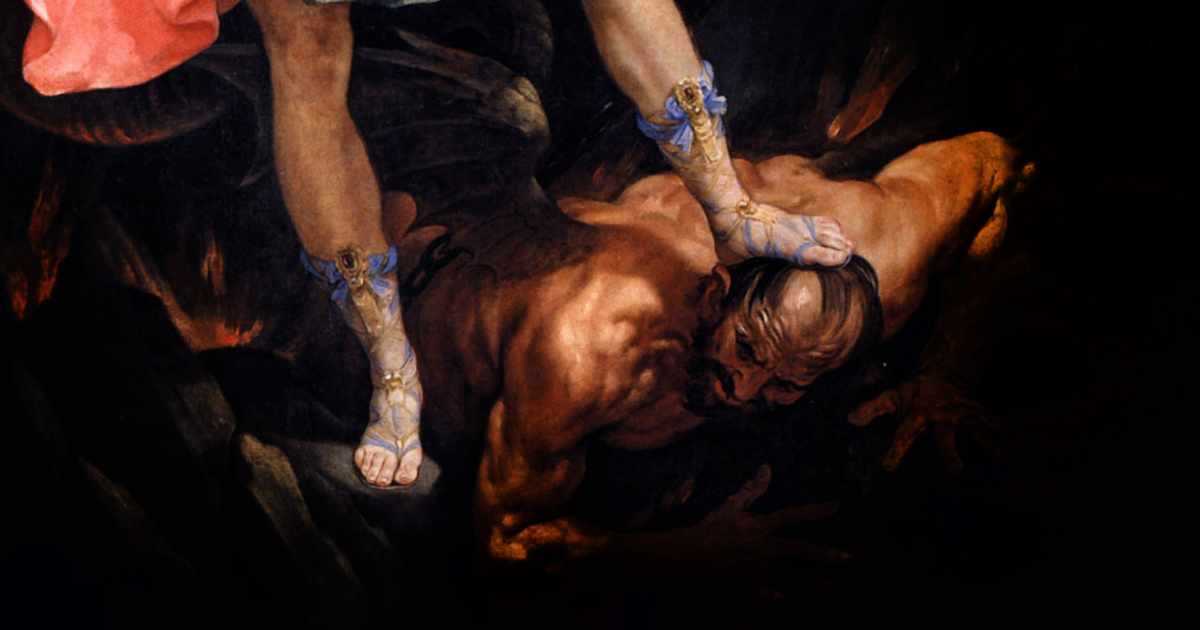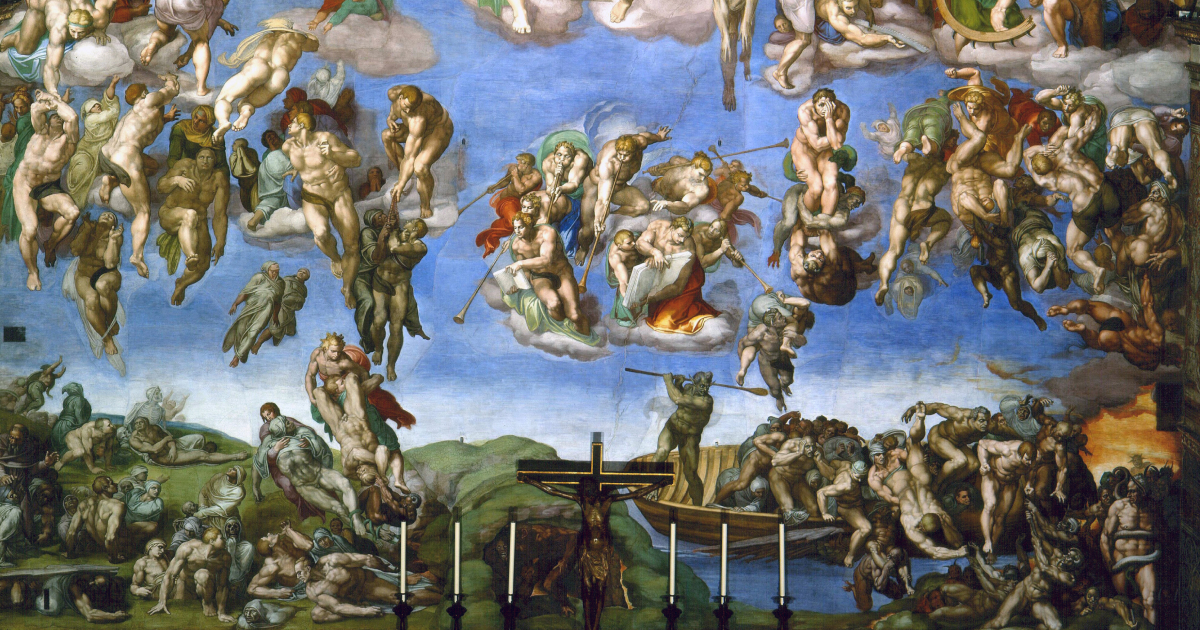ROME – Seven months after the Vatican reversed its previous course and opened a canonical inquiry into accusations of long-term abuse committed by the famed Slovenian priest and artist Marko Rupnik, a high-ranking official has said the case, while delicate, is in its advanced stages.
Speaking to journalists on 29 May during a panel on the abuse crisis in Italy, Irish Monsignor John Joseph Kennedy, when asked about the status of the inquiry into former Jesuit cleric Marko Rupnik, said his department is “working on it, we are at a fairly advanced stage”.
“It’s a delicate case, really, and we are working on it,” Monsignor Kennedy said, explaining: “We started well, and we are really continuing step after step, keeping all aspects in mind, because there is the aspect of the allegations against him, there is the aspect of the victims, there is the aspect of the impact on the Church, so it’s delicate.”
Secretary of the Disciplinary Section of the Vatican’s Dicastery for the Doctrine of the Faith (DDF), Kennedy is one of the Holy See’s leading authorities when it comes to investigating instances of clerical abuse and handing out punishments for abusers.
The Rupnik case for the past two years has shaken the Catholic Church, due to the numerous allegations made against the famed priest, as well as what many consider to be the Church’s gross mishandling of the affair.
Rupnik, 69, is accused of sexually abusing and manipulating at least 30 different women, most of whom were nuns who belonged to the Loyola Community he helped found in his native Slovenia in the 1980s.
A former member of the Pope’s Jesuit order, Rupnik is also one of the Catholic Church’s most renowned modern artists, with countless churches and shrines throughout the world containing his murals, including the Vatican and the famed Marian shrine in Lourdes.
In 2021, nine former members of the Loyola Community complained to the Vatican about Rupnik’s abuse, yet when the allegations against him broke publicly in October 2022, the then-Congregation for the Doctrine of the Faith, at the time led by Spanish Jesuit Cardinal Luis Ladaria, refused to open a formal canonical inquiry, citing a statute of limitations for the abuse of adults, despite the fact that this provision has been waived in other cases.
Despite the DDF’s decision, the Jesuits barred Rupnik from ministry and imposed restrictions on his travel and commissions for new art projects. In December 2022, they invited anyone with other claims against Rupnik to come forward, which yielded 15 new complaints against him.
After refusing to cooperate with an internal Jesuit inquiry, Rupnik was expelled from the order for disobedience in June 2023.
Despite being ousted from the Jesuits, Rupnik was incardinated into the Slovenian Diocese of Koper and appeared to be free to carry out his ministry unimpeded. However, in the wake of massive public backlash, Pope Francis in October 2023 reversed course, and waived the statute of limitations on the Rupnik case, allowing a canonical trial to proceed.
In his remarks to journalists, Kennedy said he could offer no further details on the case, but insisted it is a work in progress.
Kennedy also referred to Rupnik’s use of spiritual images and symbolism in his abuse, often styling his abuse as a mystical experience of the divine, something which traditionally in the Church has been referred to as “false mysticism", and which constitutes a crime against the faith.
Some experts have complained that debate over the term has hampered the prosecution of abusers such as Rupnik, as there is currently no provision in canon law for these crimes.
Argentinian Cardinal Víctor Manuel Fernández, prefect of the DDF, recently said false mysticism can have a lot of different meanings and is thus “not convenient” as a formal charge in canonical proceedings.
Kennedy indicated that when it comes to this kind of abuse, “We have crimes, reserved crimes” in the DDF that are each handled differently, since there are currently no specific provisions for them in the Code of Canon Law.
Speaking of the use of false mysticism to commit abuse and its absence from Canon Law, Kennedy said: “Just because it’s not a crime doesn’t mean it’s something good.”
He declined to comment further on whether Church law would or should eventually change to include provisions for these kinds of crimes; however, Fernández in his previous comments indicated that this was likely to happen, but that whatever the crime is called, it would not be false mysticism.
Kennedy spoke at a 29 May event titled “Abuse of minors: A reading of the Italian context (2001-2021)", which was organised jointly by the Italian Embassy to the Holy See and the Italian Episcopal Conference (CEI).
Asked whether the DDF’s 16 full-time officials handling cases in the disciplinary section are enough, Kennedy said that would like more, “but it’s very difficult because there aren’t many vocations".
“If a bishop has a priest who is a canonist…he needs him,” he said, adding, “we have 16 officials who work full time day and night, day after day on the same material, which is humanely is not easy, so I will also take advantage to thank them.”
Photo: Mosaics made by artist and former Jesuit priest Marko Rupnik displayed on the Notre-Dame-du-Rosaire Basilica in the Sanctuary of Lourdes, France, 31 March 2023. (Photo by CHARLY TRIBALLEAU/AFP via Getty Images.)
ROME – Seven months after the Vatican reversed its previous course and opened a canonical inquiry into accusations of long-term abuse committed by the famed Slovenian priest and artist Marko Rupnik, a high-ranking official has said the case, while delicate, is in its advanced stages.
Speaking to journalists on 29 May during a panel on the abuse crisis in Italy, Irish Monsignor John Joseph Kennedy, when asked about the status of the inquiry into former Jesuit cleric Marko Rupnik, said his department is “working on it, we are at a fairly advanced stage”.
“It’s a delicate case, really, and we are working on it,” Monsignor Kennedy said, explaining: “We started well, and we are really continuing step after step, keeping all aspects in mind, because there is the aspect of the allegations against him, there is the aspect of the victims, there is the aspect of the impact on the Church, so it’s delicate.”
Secretary of the Disciplinary Section of the Vatican’s Dicastery for the Doctrine of the Faith (DDF), Kennedy is one of the Holy See’s leading authorities when it comes to investigating instances of clerical abuse and handing out punishments for abusers.
The Rupnik case for the past two years has shaken the Catholic Church, due to the numerous allegations made against the famed priest, as well as what many consider to be the Church’s gross mishandling of the affair.
Rupnik, 69, is accused of sexually abusing and manipulating at least 30 different women, most of whom were <a href="https://catholicherald.co.uk/former-nuns-in-rupnik-abuse-case-reveal-identities-while-calling-for-complete-transparency/"><mark style="background-color:rgba(0, 0, 0, 0)" class="has-inline-color has-vivid-cyan-blue-color">nuns who belonged to the Loyola Community</mark></a> he helped found in his native Slovenia in the 1980s.
A former member of the Pope’s Jesuit order, Rupnik is also one of the Catholic Church’s most renowned modern artists, with countless churches and shrines throughout the world containing his murals, including the Vatican and the famed Marian shrine in Lourdes.
In 2021, nine former members of the Loyola Community complained to the Vatican about Rupnik’s abuse, yet when the allegations against him broke publicly in October 2022, the then-Congregation for the Doctrine of the Faith, at the time led by Spanish Jesuit Cardinal Luis Ladaria, refused to open a formal canonical inquiry, citing a statute of limitations for the abuse of adults, despite the fact that this provision has been waived in other cases.
Despite the DDF’s decision, the Jesuits barred Rupnik from ministry and imposed restrictions on his travel and commissions for new art projects. In December 2022, they invited anyone with other claims against Rupnik to come forward, which yielded 15 new complaints against him.
After refusing to cooperate with an internal Jesuit inquiry, Rupnik was expelled from the order for disobedience in June 2023.
Despite being ousted from the Jesuits, Rupnik was incardinated into the Slovenian Diocese of Koper and <a href="https://catholicherald.co.uk/rupnik-centre-gets-clean-bill-of-health-from-diocese-of-rome-with-doubts-raised-over-excommunication/"><mark style="background-color:rgba(0, 0, 0, 0)" class="has-inline-color has-vivid-cyan-blue-color">appeared to be free to carry out his ministry unimpeded</mark></a>. However, in the wake of massive public backlash, Pope Francis in October 2023 reversed course, and waived the statute of limitations on the Rupnik case, allowing a canonical trial to proceed.
In his remarks to journalists, Kennedy said he could offer no further details on the case, but insisted it is a work in progress.
Kennedy also referred to Rupnik’s use of spiritual images and symbolism in his abuse, often styling his abuse as a mystical experience of the divine, something which traditionally in the Church has been referred to as “false mysticism", and which constitutes a crime against the faith.
Some experts have complained that <a href="https://catholicherald.co.uk/legal-gap-around-false-mysticism-may-hamper-rupnik-prosecution-experts-say/"><mark style="background-color:rgba(0, 0, 0, 0)" class="has-inline-color has-vivid-cyan-blue-color">debate over the term has hampered the prosecution of abusers</mark></a> such as Rupnik, as there is currently no provision in canon law for these crimes.
Argentinian Cardinal Víctor Manuel Fernández, prefect of the DDF, recently said false mysticism can have a lot of different meanings and is thus “not convenient” as a formal charge in canonical proceedings.
Kennedy indicated that when it comes to this kind of abuse, “We have crimes, reserved crimes” in the DDF that are each handled differently, since there are currently no specific provisions for them in the Code of Canon Law.
Speaking of the use of false mysticism to commit abuse and its absence from Canon Law, Kennedy said: “Just because it’s not a crime doesn’t mean it’s something good.”
He declined to comment further on whether Church law would or should eventually change to include provisions for these kinds of crimes; however, Fernández in his previous comments indicated that this was likely to happen, but that whatever the crime is called, it would not be false mysticism.
Kennedy spoke at a 29 May event titled “Abuse of minors: A reading of the Italian context (2001-2021)", which was organised jointly by the Italian Embassy to the Holy See and the Italian Episcopal Conference (CEI).
Asked whether the DDF’s 16 full-time officials handling cases in the disciplinary section are enough, Kennedy said that would like more, “but it’s very difficult because there aren’t many vocations".
“If a bishop has a priest who is a canonist…he needs him,” he said, adding, “we have 16 officials who work full time day and night, day after day on the same material, which is humanely is not easy, so I will also take advantage to thank them.”
<em>Photo: Mosaics made by artist and former Jesuit priest Marko Rupnik displayed on the Notre-Dame-du-Rosaire Basilica in the Sanctuary of Lourdes, France, 31 March 2023. (Photo by CHARLY TRIBALLEAU/AFP via Getty Images.)</em><br>





